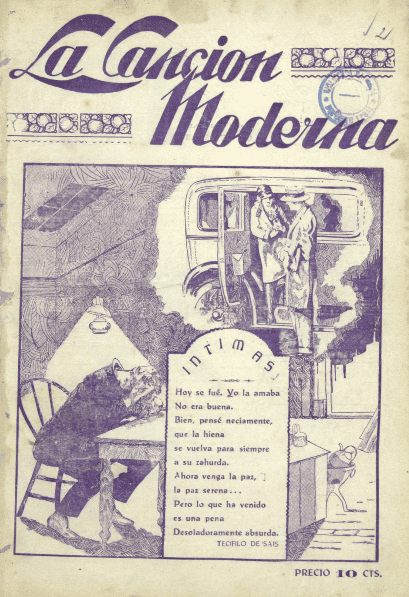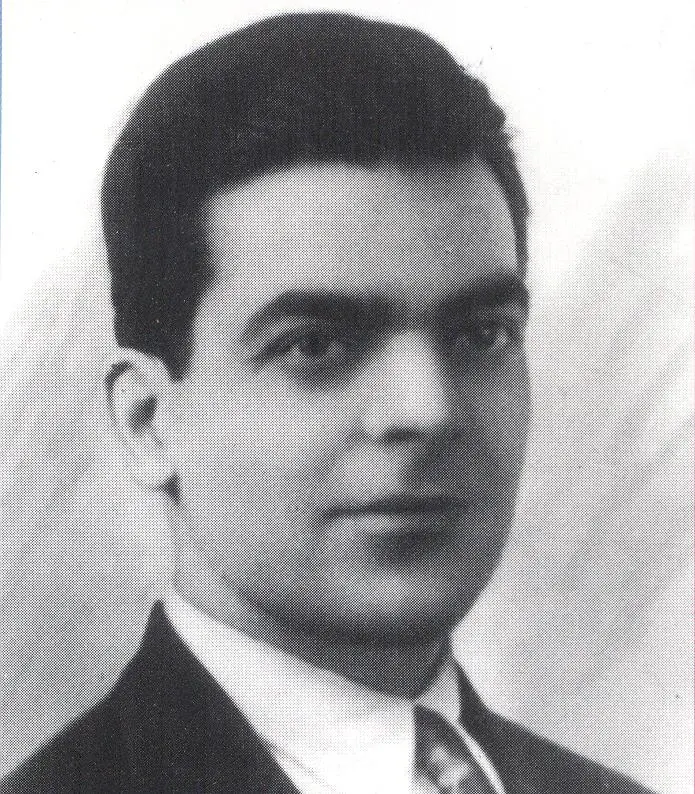Biography
Born Francisco Bautista Rímoli on August 10, 1903, Dante Linyera, a renowned Argentine poet and journalist, is remembered for his early contributions to the Tango. Coming from a poor background and growing up as an orphan, he worked as a “cantinero”, a barman in a local bodega. At just 16, he began his career at the morning newspaper La Argentina, later contributing to other newspaper of that period, El Telégrafo and La Montaña.
Under the pseudonym “Dante Linyera,” he became a prolific contributor to “El Alma que Canta”, a songbook with popular political stances. “Linyera,” a slang term meaning “vagabond,” reflected his societal observations.
His theatrical endeavors included the play “Mambrú se fue a la guerra,” and he crafted several tango lyrics, notably “Boedo,” penned in 1928 and set to music by Julio De Caro.
Beyond his literary pursuits, Linyera founded the children’s magazine El Purrete, collaborated with the football magazine La Cancha, and established the influential magazine “La Canción Moderna”, which later transformed into the successful Radiolandia with the advent of cinema.

Linyera’s Impact
Nicolás Olivari, a poet and playwright, remembered Linyera as a “singer anguished by the port city, a man overshadowed by the suffering of the poor.” Linyera’s physical ailment, a limp leg, became a metaphorical representation of his literary challenges.
Álvaro Yunque, a writer who knew Linyera in his youth, described him as a small, agile, insolent, and intelligent individual. Despite Linyera’s lack of formal education, Yunque recognized his potential, fostering his growth as a poet.
Most Important Tango Songs by Dante Linyera
Song Name: Boedo
- Recording Year: 1928
- Orchestra: Julio De Caro
- Singer: N/A
- Details: “Boedo” remains a tango classic, its poignant lyrics penned by Linyera in 1928 and set to music by Julio De Caro, continuing to captivate dancers with its emotive melody.
Legacy and Final Days
Dante A. Linyera, adhered to anarchist ideals, fighting for the underprivileged. His works, spanning romantic poetry under various pseudonyms to his formal publication “Semos hermanos” in 1933.
Living in perpetual poverty, Linyera remained true to his convictions until his tragic demise. Afflicted by untreated syphilis and tuberculosis, he succumbed to madness, passing away in solitude in a hospital on July 15, 1938, just days before his 35th birthday.
Frequently Asked Questions about Dante Linyera
What was Dante Linyera’s significant contribution to tango?
Linyera wrote poignant tango lyrics, notably “Boedo,” in 1928, showcasing his ability to capture the essence of Argentine music.
How did Linyera’s physical ailment impact his life and work?
Linyera’s limp leg, as noted by Olivari, became a symbolic representation of the poet’s challenges and struggles.
Notable Sources
For a deeper dive into Dante Linyera’s life and influence:
- José Gobello’s “Mujeres y hombres que hicieron el tango” (2002).
- Néstor Pinsón’s article “Dante A. Linyera.”






